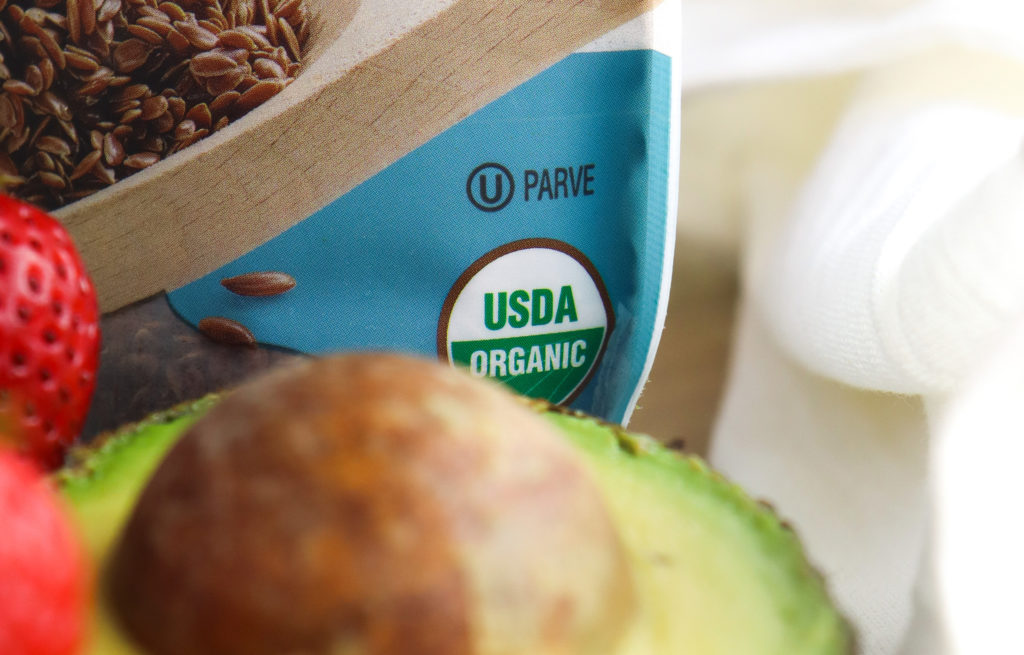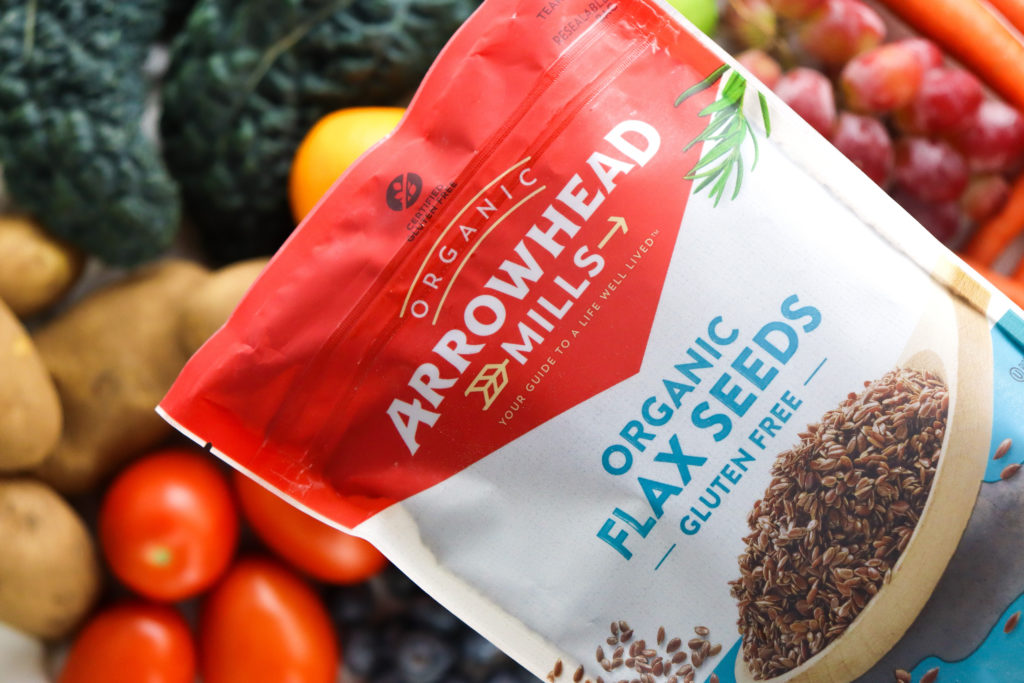What is Organic?
“It’s Organic.” Just saying it makes you feel healthy. You may not even know why, but you are positive that choosing the organic labeled cereal you were deciding between is indeed going to be the better choice. While labels and marketing can be sometimes be informative, we are here to answer to the question “why?” Just like there is no sense in having a shield in battle if you don’t know how to use it, there is no sense in having a label if you’re not sure what it means.
Products are labeled “organic” on the shelf
The organic label you are seeing refers to as defined by the USDA Agricultural Marketing Service, “products must be produced using agricultural production practices that foster resource cycling, promote ecological balance, maintain and improve soil and water quality, minimize the use of synthetic materials and conserve biodiversity.” That is a lot of words for a little label. So we at Arrowhead Mills will venture to break it down.

What exactly does that mean?
Resource cycling can refer to a few things. For example, using compost or natural waste materials broken down by a plethora of microbes and fungi turning into nutrient rich plant food.
Additionally, this phrase can refer to something called cover crops or nutrient cycling. At the end of a growing season, the farmer sows seeds of a plant that will return nutrients to the depleted soil. According to Farm Progress, “nutrient cycling is a complex process by which soil microbes convert nutrients that are locked up or otherwise unavailable to the plants such as nitrogen and phosphorus into plant available nutrients.” A crop like corn consumes nitrogen is followed by a crop cover plant that returns nitrogen to the soil like soy beans. This offers a harmonious relationship for long term sustainability.
This also aids in maintaining the hydration to the soil and increases the soils organic matter. These cover crops can decrease soil erosion, runoff, drainage, air flow and much more. When the cover crops decompose at the end of their season, they add even more nutrients to the soil and mycorrhiza (beneficial fungi).
Organic is mostly associated with minimal synthetic materials
The minimizing of synthetic materials and conserving of biodiversity, however, is probably what the organic label is most known for. Infamously, correlated with this subject is glyphosate. This toxic active ingredient herbicide and crop desiccant has made headlines for its debated link to cancer. The famous weed killer ingredient since its 1974 debut has been used in hundreds of industrial and commercial products.
With the ingredient itself being so detrimental to the soil, modified herbicide tolerant crops have been developed by the food industry, resulting in Genetically Modified Organisms (GMO). But that topic is for another time.
The nation’s huge increase of glyphosate has been directed to this very use. While many studies of glyphosate and its potential link to cancer are still open and ongoing, billions of dollars in damages have been paid for this alleged link. While herbicide manufacturers still stand by their products, the $10 million dollars settled on for future and current lawsuits as reported by CNN does make some weary about the idea of consuming known contaminated products.
The litany of reasons to choose organic is ongoing. From its lack of being processed with toxic chemicals like the neurotoxin hexane or being prohibited from fertilizing with sewage sludge that can contain things like heavy metals, pathogens, pharmaceuticals, endocrine disruptors and so much more — it’s no wonder that more people are choosing organic.

The organic revolution is here
Revolutions have birthed ingenuity, curiosity and change. True change is tested rigorously by time, allowing the faults in its mechanisms to organically weed itself out. Nothing, time has shown us, is an exception to this scrutiny. You cannot synthesize our humanistic desire to find a better way of doing things.
“At Arrowhead Mills, the way we see it is that when you take out all those synthetic chemicals, there’s just more room left for natural goodness.”
 VIEW ALL PRODUCTS
VIEW ALL PRODUCTS 
